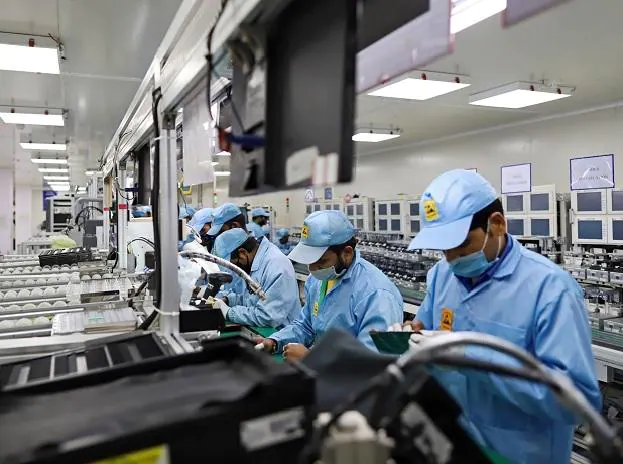TOKYO, Jun 01 (ABC): Capital spending by Japanese companies increased in the January-March quarter from a year earlier, booking the fourth quarter of gains, as business spending on digital and green technology rose notably, the government said in a report on Wednesday.
According to the Finance Ministry, capital spending by Japanese companies rose 3.0 percent in the January-March quarter from a year earlier with investment by all non-financial sectors totaling 14.9 trillion yen (115.17 billion U.S. dollars), in the reporting period.
As for the manufacturing sector, capital expenditure grew 5.9 percent, to mark the fourth successive quarter of gains, to a total of 4.9 trillion yen.
This was owing to increased spending in the transportation equipment industry as automakers spent more on digital technologies in twine with goals to meet the country’s target of carbon neutrality.
In the non-manufacturing sector, meanwhile, business spending increased for a further straight quarter to 10.0 trillion yen (77.27 billion U.S. dollars), an increase of 1.6 percent, as a result of real estate businesses signing more contracts, with the promotion of digitalization being actively pushed by wholesalers and retailers planning to open new stores.
“Business investments by manufacturers have largely recovered to the pre-pandemic level, while those by non-manufacturers remain weak,” a ministry official was quoted as saying.
“The Japanese economy is picking up, although some businesses are still affected by the coronavirus pandemic fallout,” the official added.
The government has pledged to achieve a carbon-neutral society by 2050, with numerous businesses and conglomerates becoming less reliant on fossil fuels in favor of renewables.
“Environmental measures will continue to be one of the factors to ramp up business investments,” said the ministry official.
The ministry said that companies’ pretax profits and sales of companies increased, owning in part to surging prices for fuel and commodities as a result of the Russia-Ukraine conflict.
The ministry’s data showed that in the recording period, pretax profits climbed 13.7 percent to 22.8 trillion yen (176.16 billion U.S. dollars), helped by growth in the chemical industry, as higher costs for raw materials began to be passed on by petrochemical makers to their consumers and increase profits.
Oil wholesalers also booked growth, in the recording period, the ministry said.
Sales were up 7.9 percent, the ministry said, expanding for the fourth straight quarter, to 360.8 trillion yen (2.78 trillion U.S. dollars), also lifted by chemical product makers and wholesalers.
The Cabinet Office will release its revised gross domestic product data for the same quarter on June 8, based on the latest capital expenditure figures.
Preliminary GDP data showed Japan’s economy contracted an annualized real 1.0 percent in the first quarter of the year, owing to personal consumption being zapped by COVID-19 restrictions, which also inhibited the nation’s economic activities.
Takeshi Minami, chief economist at the Norinchukin Research Institute, forecast GDP would be revised slightly downward as capital spending rose only 0.3 percent from the October-December period on a seasonally adjusted quarter-on-quarter basis. The ministry surveyed 32,112 companies capitalized at 10 million yen (77,200 U.S. dollars) or more.

